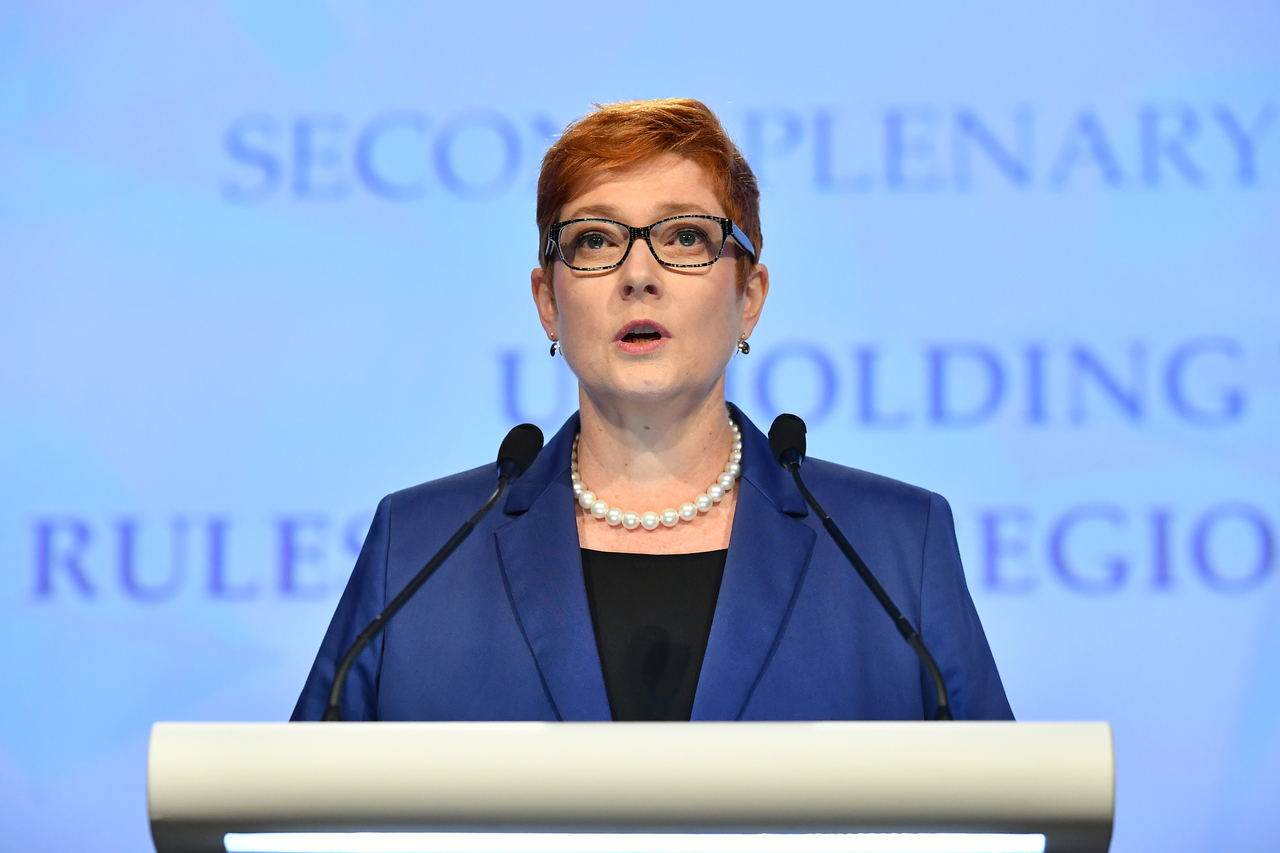Australia cancels Belt and Road deals; China warns of further damage to ties
Sign up now: Get ST's newsletters delivered to your inbox

Under a new process, Marise Payne can review deals struck with foreign nations by Australia's states and universities.
PHOTO: ST FILE
Follow topic:
SYDNEY (REUTERS, BLOOMBERG) - Australia on Wednesday (April 21) cancelled two deals struck by its state of Victoria with China on Beijing's flagship Belt and Road Initiative, prompting the Chinese embassy in Canberra to warn that already tense bilateral ties were bound to worsen.
Under a new process in Australia, Foreign Minister Marise Payne has the power to review deals reached with other nations by the country's states and universities.
Payne said she had decided to cancel four deals, including two that Victoria agreed with China, in 2018 and 2019, on cooperation with the Belt and Road Initiative, Chinese President Xi Jinping's signature trade and infrastructure scheme.
"I consider these four arrangements to be inconsistent with Australia's foreign policy or adverse to our foreign relations," she said in a statement.
China's embassy in Australia voiced its "strong displeasure and resolute opposition" to the cancellations late on Wednesday.
"This is another unreasonable and provocative move taken by the Australian side against China," the embassy said in a statement.
"It further shows that the Australian government has no sincerity in improving China-Australia relations."
Australia "basically fired the first major shot against China in trade and investment" conflicts, Chen Hong, director of the Australian Studies Center at East China Normal University in Shanghai, told the Communist Party-backed Global Times.
"China will surely respond accordingly."
"What we have to wait for now is how Beijing will react materially" to Payne's move, Clive Hamilton, a professor at the Charles Sturt University, said in a Bloomberg Television interview on Thursday.
"The Belt and Road is Beijing's strategic tool to advance Beijing's influence around the world."
The bans are the first under laws passed by the national Parliament in December that give the foreign minister the ability to stop new and previously signed agreements between overseas governments and Australia's eight states and territories, and also with bodies such as local authorities and universities.
Payne's announcement, which included bans on two other deals between Victoria and the governments of Iran and Syria, came the same day a Chinese diplomat indicated that there will be no immediate thaw in ties between Beijing and Canberra.
"We have done nothing intentionally to hurt this relationship, and we have seen too many incidents over the past few years in which China's interest has been hurt," Wang Xining, the Chinese Embassy's deputy head of mission, told reporters in Canberra.
Wang Huiyao, an adviser to China's Cabinet and founder of the Centre for China and Globalisation, described Australia's move as unwise.
Victoria's participation in the Belt and Road Initiative was a "huge benefit" for Australia, and "if they abandon that, it's going to take more time for China-Australia relations to recover," he said.
Bilateral ties were strained in 2018 when Australia became the first country to publicly ban Chinese tech giant Huawei from its 5G network. Relations worsened last year when Canberra called for an independent probe into the origins of the coronavirus outbreak.
Australia's latest move "is bound to bring further damage to bilateral relations, and will only end up hurting itself," the Chinese embassy said.
Liberal Prime Minister Scott Morrison and his predecessor Malcolm Turnbull had declined to agree to a country-level MOU with China on the Belt and Road Initiative.
But Victoria's Labor state premier Dan Andrews signed agreements with China's National Development and Reform Commission to promote the initiative in 2018 and 2019.
Some countries fear the lending the Belt and Road scheme entails could lead to unsustainable debt levels in developing nations, including the Pacific islands region.
Morrison's government has denied that its new veto power is aimed at China, Australia's largest trading partner and biggest source of overseas universities students before the pandemic led the country to close its borders.
Payne said states, local governments and publicly funded universities had notified her of more than 1,000 foreign deals overall.

